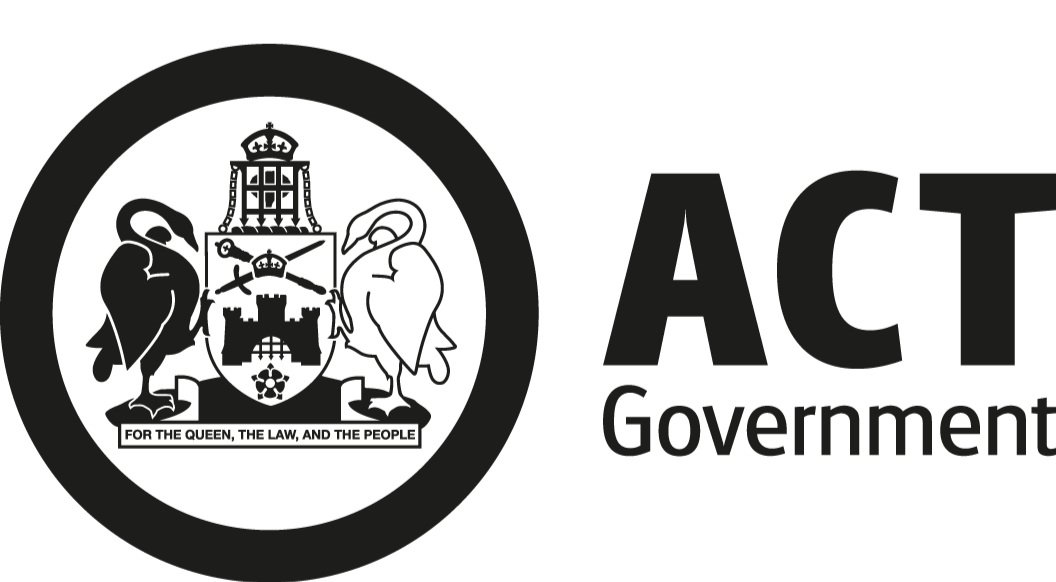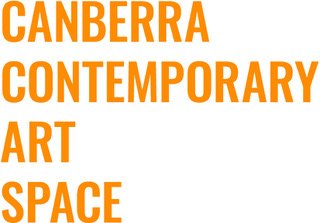ACT Literary Awards
The MARION Book Awards and Family Awards (in memorium)
On Thursday, 27 June, we held the ACT Literary Awards at Canberra Contemporary Art Space (CCAS) in Parkes, ACT. Together, we celebrated the excellence of the literary sector in the ACT and surrounding regions.
The winners from each category in the book awards have produced exceptional published works. Across all categories, judges were asked to consider entries that stand out in their brilliance and demonstrate literary excellence, powerful narrative structure, and impactful use of language.
Alex Sloan AM (Photo by Hilary Wardhaugh)
We extend our gratitude to our fantastic judges this year: Professor Frank Bongiorno, Dr. Paul Collis, Dan Hogan, Krys Saclier, and Beejay Silcox. We had a remarkable shortlist, and the judges faced a challenging task across categories.
This year there were two recipients sharing in the Anne Edgeworth Fellowship. We also announced the winners of the June Shenfield National Poetry Awards.
We ended the evening with the announcement of the recipient of the MARION Fellowship award and the inaugural Marion Halligan Award.
Thank you to all who entered this year's awards and to all who came to celebrate the successes with us at CCAS. It was truly a wonderful evening that left us feeling inspired and invigorated for our sector.
FAMILY AWARDS
JUNE SHENFIELD POETRY AWARDS
FIRST PRIZE Cate Furey, Momentum (ACT)
Momentum is a touching poem, deftly written. The poet’s skilful arrangement of stirring imagery and realistic conversation has produced a poem that effectively enunciates the incorporeal. Momentum is a commendable work furnished with an adept minimalistic sensibility as well as a clear and considered voice. The poem’s crisp composition intertwines both spectral and naturalistic qualities, successfully rendering a poignant atmosphere and deep emotionality. Momentum delicately conjures the intangible, lingering in the reader’s mind long after the last word.
SECOND PRIZE Lucinda Ferguson, Wasabi Peas (NSW)
Wasabi Peas is a poem compelling for its spirited voice and playful exploration of memory and loss. The poem’s style of storytelling and sensory imagery surface the questioning wonder of the child as witness – witness to absence, illusion, the symbolic that can be read from the real. The author has woven a poem with a propulsive narrative drive that takes the reader in unexpected directions while maintaining a cohesive thematic tract; a skilful achievement, which makes for highly enjoyable reading.
THIRD PRIZE Hayden William, Now Who Let These Thoughts In? (NSW)
From the first line, ‘Lacking through window, the escalator’, the intriguing interplay between phrase and image, between familiar and unfamiliar, make Now Who Let These Thoughts In? a poem worthy of commendation. The poet’s playful enjambment combined with punchy imagery have rendered a poem that dispenses absurd moments while remaining cohesive and compelling, a difficult feat to achieve. Now Who Let These Thoughts In? is a poem that rewards re-reading, offering readers poetical knots to untie and contemplate.
ANNE EDGEWORTH WRITER’S FELLOWSHIP AWARD
JOINT AWARD WINNERS Jemima Parker and Gill Watson
The Anne Edgeworth Emerging Writer’s Fellowship is provided to an emerging writer in the Canberra Region. The Fellowship is worth up to $5,000 and is to be used to advance the recipients’ development in the craft of writing. The Fellowship is provided annually by the Anne Edgeworth Trust and administered by MARION.
JEMIMA PARKER
Jemima has been recognised for her creative achievements in children's literature, a genre in which she has developed considerable skill. She aims to extend her talents into writing young adult fiction, which promises to be a stepping stone for further creative literary accomplishments. This fellowship will enable her to dedicate more time to undertaking a mentorship with Pip Harry, whose guidance has been inspirational for her development.
(Photo by Hilary Wardhaugh)
GILL WATSON
The Anne Edgeworth Fellowship will provide Gill with mentorship, editorial assistance, and the opportunity to deepen her understanding of the editing and publishing process from industry professionals. Gill is making significant progress towards completing the first draft of her novel, This Could be Ours – a Künstlerroman set in the Canberra and Queanbeyan-Palerang region.
(Photo by Hilary Wardhaugh)
The Marion Halligan Award
This award recognises work that demonstrates uniqueness, literary excellence and surpasses genre. The winning work is selected across all categories of the ACT Literary Awards.
The winner of the inaugural Marion Halligan Award is Paul Hetherington for Sleeplessness (Pierian Springs Press).
Edgar Halligan presents the Marion Halligan award to Paul Hetherington. (Photos by Hilary Wardhaugh)
POETRY AWARDS
TRADITIONAL PUBLISHING
WINNER Tim Metcalf, The Moon the Bone: Selected Poems 1986-2022 (Ginninderra Press)
A most magnificent collection of works that covers the human emotional experience beautifully. - Judges’ comments
Highly commended K A Nelson, Meaty Bones (Recent Work Press)
Highly commended Sandra Renew, Apostles of Anarchy (Recent Work Press)
NONFICTION AWARDS
SELF-PUBLISHED
WINNER Kristen Alexander, Kriegies: The Australian Airmen of Stalag Luft III
Kristen Alexander has produced a meticulously researched, accessible and wide-ranging study of a group of prisoners of war whose experiences are more encrusted in legend than most. Stalag Luft III was the setting for ‘The Great Escape’, made famous in the book by Australian writer and former POW Paul Brickhill and the acclaimed 1963 film. Alexander’s story is of the Australians in the camp, and it is a gripping one of their experiences from capture to return – when, indeed, they managed to survive the war. The research, based on family records and extensive work in public archives, underpins a model social history that contributes to our understanding of the physical and emotional experiences of POWs, as well as the hardships endured, outside the barbed wire, by those who loved them. - Judges’ comments
Highly commended Kellie Nissen, What Cancer Said: And What I Said Back
This is a frank, well-written and good-humoured memoir of the devastating experience of breast cancer. Kellie Nissen, a Canberra teacher, movingly explores the thoughts, feelings, insensitivities and kindnesses unleashed in herself and others in this upending of her life in 2017. This well-told story will resonate not only with those who have had cancer, but with anyone looking for a better understanding of the fear, frustration, dislocation and trauma of a life-threatening illness. While at one level a narrative about cancer, it is ultimately a reflection on what matters most in life. - Judges’ comments.
TRADITIONAL PUBLISHING
WINNER Kate Fullagar, Bennelong & Phillip: A History Unravelled (Scribner Australia)
In Bennelong & Phillip: A History Unravelled, Kate Fullagar offers an imaginative, scholarly and accessible double biography of a British governor and a Yiyura (Eora) man. Fullagar reveals the many ways that this very local and human drama is also about a wider British imperialism and colonialism, understood as forces reshaping global politics, forging careers for British men of ambition, and upturning the lives of colonised peoples. Fullagar has an experimental approach to narration, beginning with Bennelong’s and Arthur Phillip’s posthumous reputations and then telling their story so that each chapter takes us further into their respective pasts. The approach unsettles our sense of a neatly unfolding history, decentres the brief period of these men’s entanglement in each other’s lives, and challenges understanding of empire as a relentless and inevitable forward march. This is an accomplished account that advances our understanding of both our national myths and the historical understandings that have so often been built on them. - Judges’ comments
Highly commended Angus Trumble, Helena Rubinstein: The Australian Years (La Trobe University Press, Black Inc.)
Helena Rubinstein became one of the world’s most famous businesswomen as the New York-based owner of a cosmetics empire as well as a significant figure in the arts and philanthropy. She has attracted considerable biographical attention, but there has been little focus on where this Jewish-Polish emigrant got her start in business, in Australia. The late Angus Trumble’s sparkling Helena Rubinstein: The Australian Years begins with a splendid portrait of Rubinstein painted by Graham Sutherland in 1957 and acquired by the National Portrait Gallery while Trumble was its director. Then, with the help of the National Library’s Trove, Trumble was able to trace the early contours of Rubinstein’s career in Australia and New Zealand, placing her early achievements in the context of the opportunities available to Antipodean women entrepreneurs while never losing sight of the brashness, ambition and sheer chutzpah Rubinstein brought to a stellar business career. This is an engaging and enjoyable account of an extraordinary life. - Judges’ comments.
FICTION AWARDS
SELF-PUBLISHED
Highly commended Elisa Cristallo, The Last Famine
The Last Famine is a clever and memorable thought experiment about the future of food security. Elisa Cristallo makes full use of the possibilities of dystopian fiction to provoke and to entertain. Her novel is commended for its imaginative brio. - Judges’ comments
TRADITIONAL PUBLISHING
WINNER Kylie Needham, Girl in a Pink Dress (Penguin Books Australia)
Girl in a Pink Dress asks big, thorny questions about desire, domesticity, ambition and art-making, but it is not faddish or didactic. Rather, it is a work of quiet and assured potency: cleverly plotted, historically rich, and exquisitely restrained. That Needham achieves all that she does on such a small canvas is testament to her skill. Not a word is wasted in this novella. It is a small marvel. - Judges’ comments
Highly commended Ayesha Inoon, Untethered (Harper Collins Australia)
It is hard to believe that Untethered is Ayesha Inoon's debut work of fiction - the characters she has created are so fully-fledged, so entirely alive. Inoon’s novel is an eloquent and necessary reminder that there is no one-size-fits-all tale of Australian migration: every journey is different and every story matters. A triumph of nuance and human(e) grace. - Judges’ comments.
CHILDREN’S AWARDS
SELF-PUBLISHED
WINNER David Conley, That Book About Space Stuff
The universe explained! A great way to introduce a complex topic to children and adults. The high ratio of illustrations to text and the structure makes this easy to read and follow. The comic book style is funny, with extra points for giving dark matter a personality. The glossary and fact-checking by physicist Phil are non-fiction must haves. Well done. - Judges’ comments
Highly commended Barbie Robinson and Ian Robertson, Phoenix and Ralph
Ngunawal man Wally Bell offers a Rite Of Passage to the attendees
Gary Lonesborough - Winner of the Older Readers Award
Tania McCartney - Winner of the Nonfiction Children’s Award
(Photos by Hilary Wardhaugh)
TRADITIONAL PUBLISHING
WINNER - PICTURE BOOK Jackie French and Danny Snell (ill.), The Turtle and the Flood (HarperCollins Australia)
The Turtle and the Flood is a master class in picture books. Jackie French, proves once again why she is a national treasure. A perfect narrative that builds anticipation with the right word always in the right place. Rhyme and repetition make it a great read aloud adventure with her love for Australian nature shining through. Danny Snell’s delightful illustrations interplay beautifully with the story, imbuing the animal characters with personality while keeping true to their real appearance. The central portrait of the rain is a surprise, causing physical action to match the movement of the weather. - Judges’ comments
WINNER - NONFICTION BOOK Tania McCartney, Wildlife Compendium of the World (Hardie Grant)
An extraordinary romp through the world of animals. Tania McCartney has researched every corner of the earth and its incredible creatures. Not only is this beautifully produced book stuffed full of fascinating facts, the writing is imbued with an entertaining whimsy. The illustrations are both clear and charming, which is a feat in itself. Every animal loving child (and adult) will love this book. - Judges’ comments
WINNER - OLDER READERS Gary Lonesborough, We Didn’t Think It Through (Allen & Unwin)
This compelling coming of age story is told with a voice so authentic, it pulls the reader into another life. Main character, Jamie, makes all the mistakes of a teenager struggling with the pain of the past and the turbulence of the present, but his humour and honesty creates empathy for someone who would otherwise be misunderstood. Gary Lonesborough’s use of language, including sections of verse, is so well done it described the indescribable. The pace kept the pages turning and the ending brought relief and hope for the future. - Judges’ comments
Highly commended Emma Janssen, Strong Little Platypus (Twinkl Australia)
Highly commended Amelia McInerney and Lucinda Gifford (ill.), Neil the Amazing Sea Cucumber (Affirm Press)
Highly commended Kathy Weeden and Kim Drane (ill.), Phonobet (National Library of Australia)
Highly commended Rhian Williams and Martina Heiduczek (ill.), Surprise at the End of Onkaparinga Lane (Walker Books Australia)
(Photo by Hilary Wardhaugh)
(Photo by Hilary Wardhaugh)
THE MARION FELLOWSHIP
The MARION Fellowship was awarded to Callie Doyle-Scott.
Callie Doyle-Scott is a writer and game maker whose experience in game design has honed her remarkable talent for world-building. Her novel manuscript, Soup for the Moon, captivated us with its immersive and enchanting quality. We are thrilled to support Callie on her journey to bring Soup for the Moon to life. As part of this support, Callie will benefit from a mentorship with Isobelle Carmody, who enthusiastically agreed to mentor Callie after reading her highly original and exciting sample. We look forward to fostering and developing Callie’s writing practice through the MARION Fellowship Award.
WITH THANKS TO OUR SUPPORTERS AND SPONSORS

















